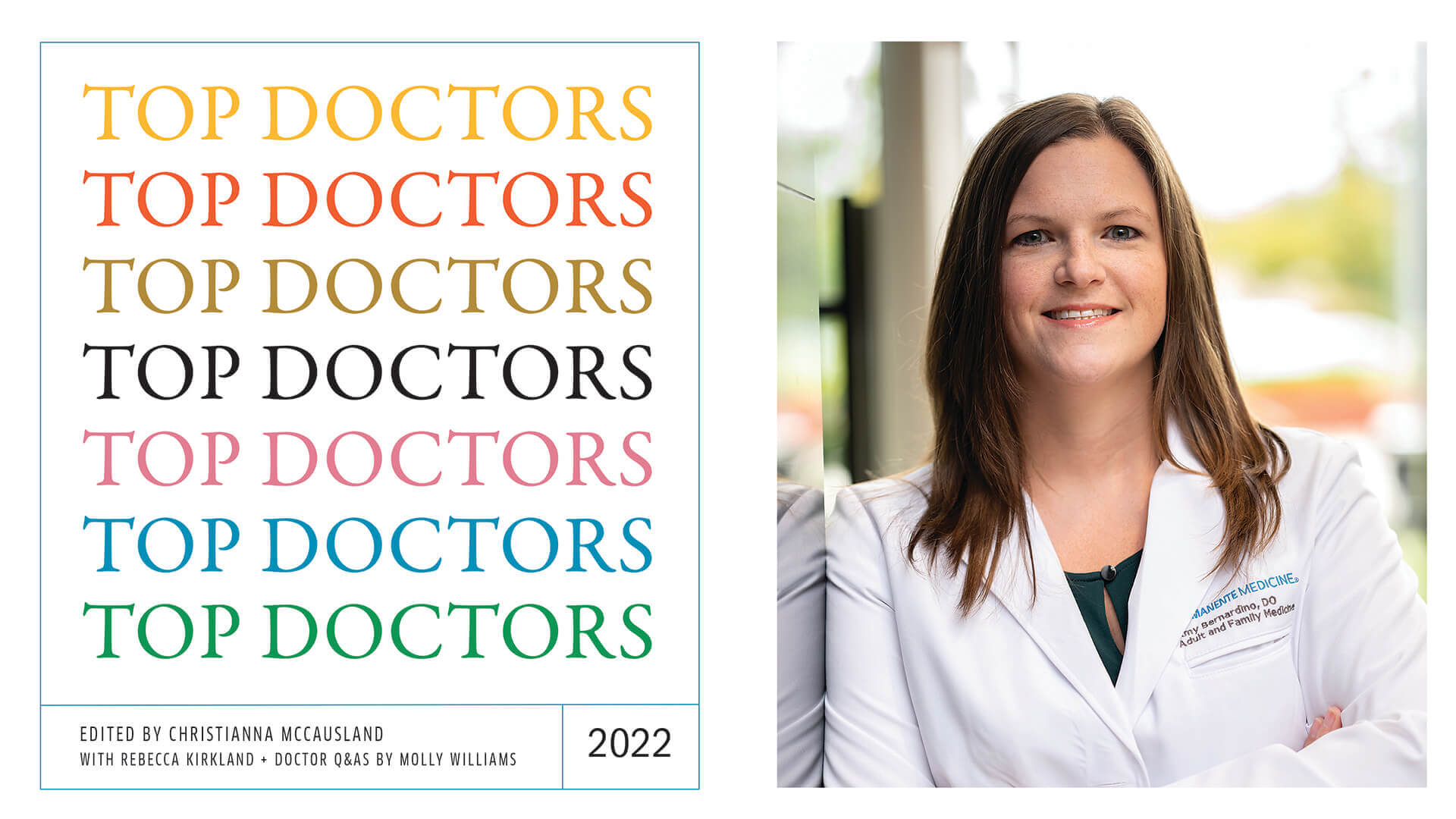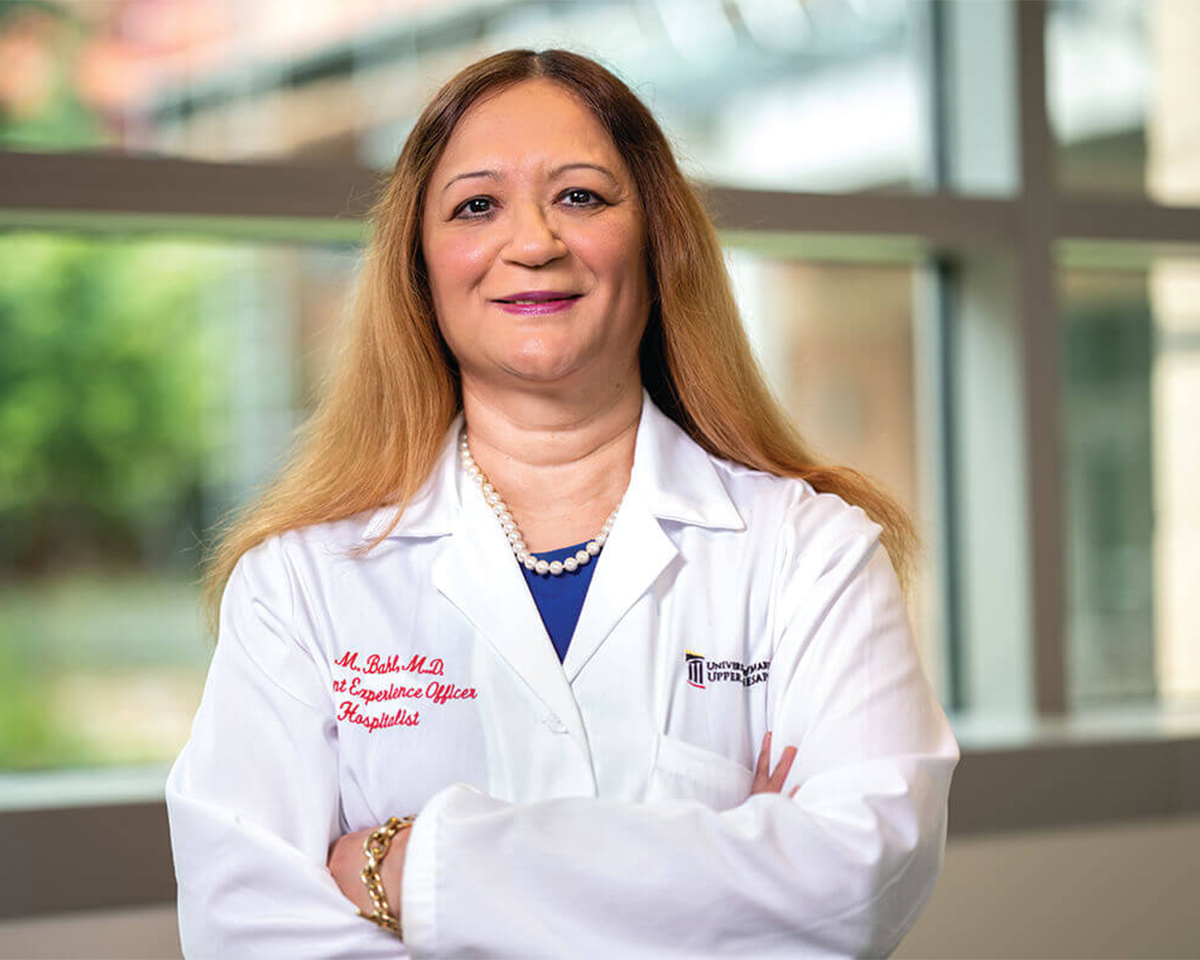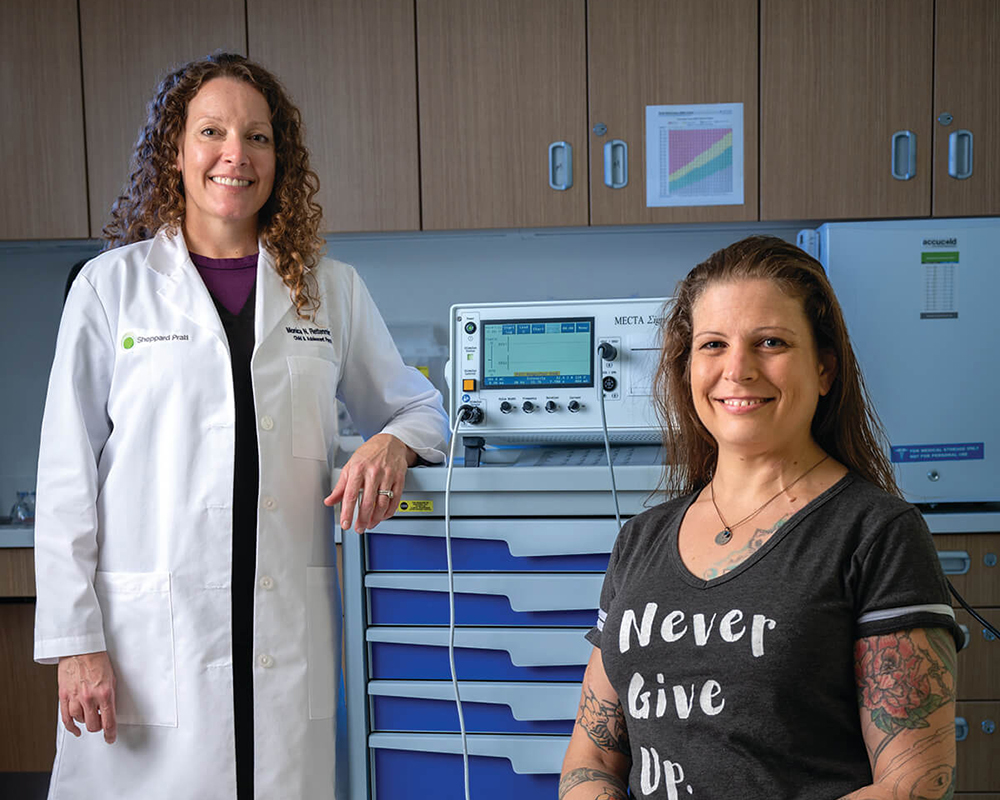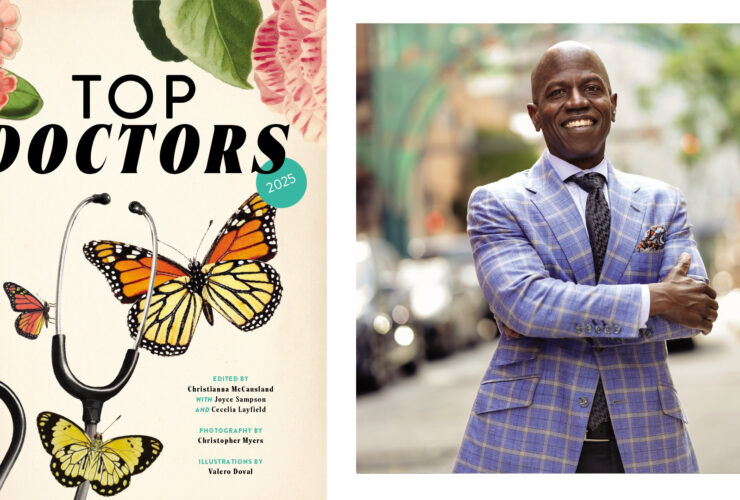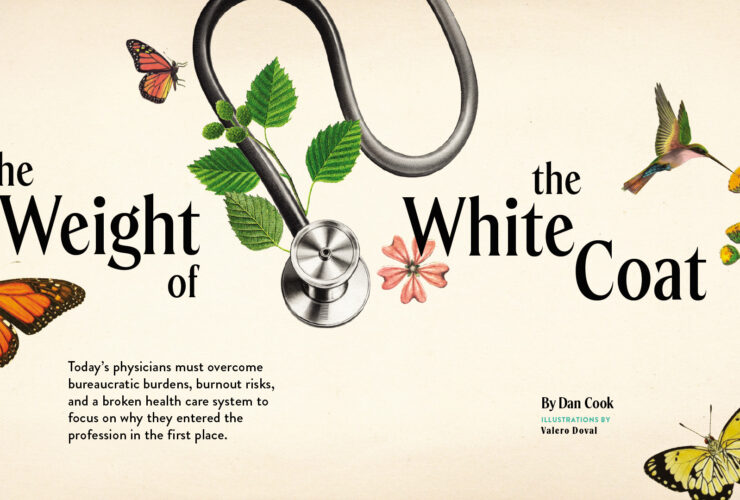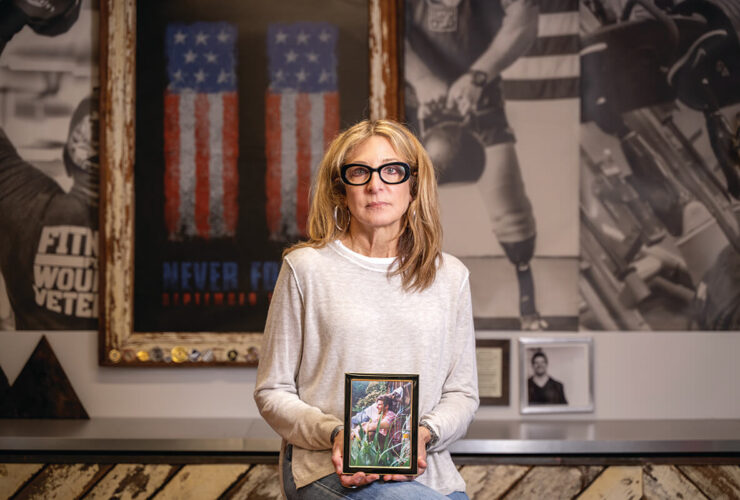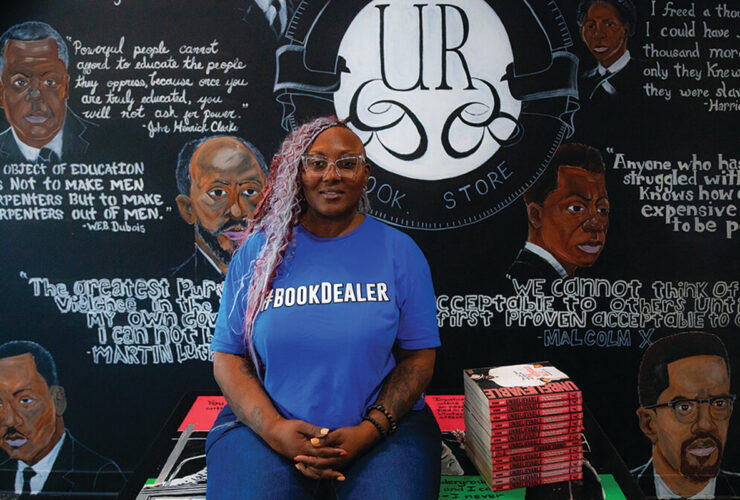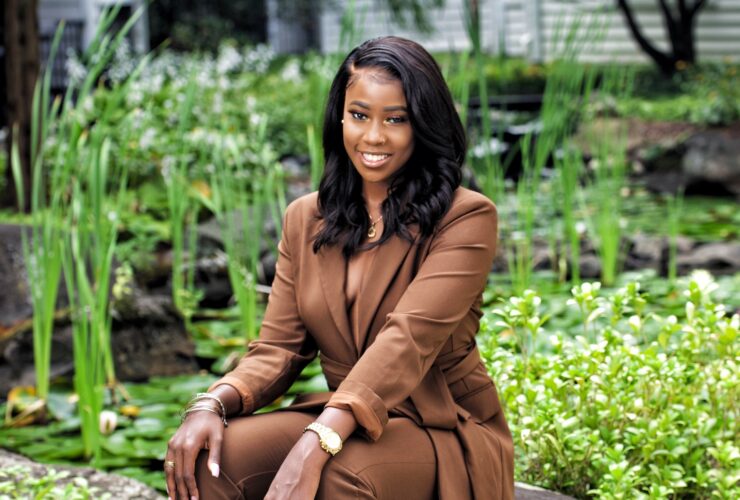Health & Wellness
Top Doctors 2022
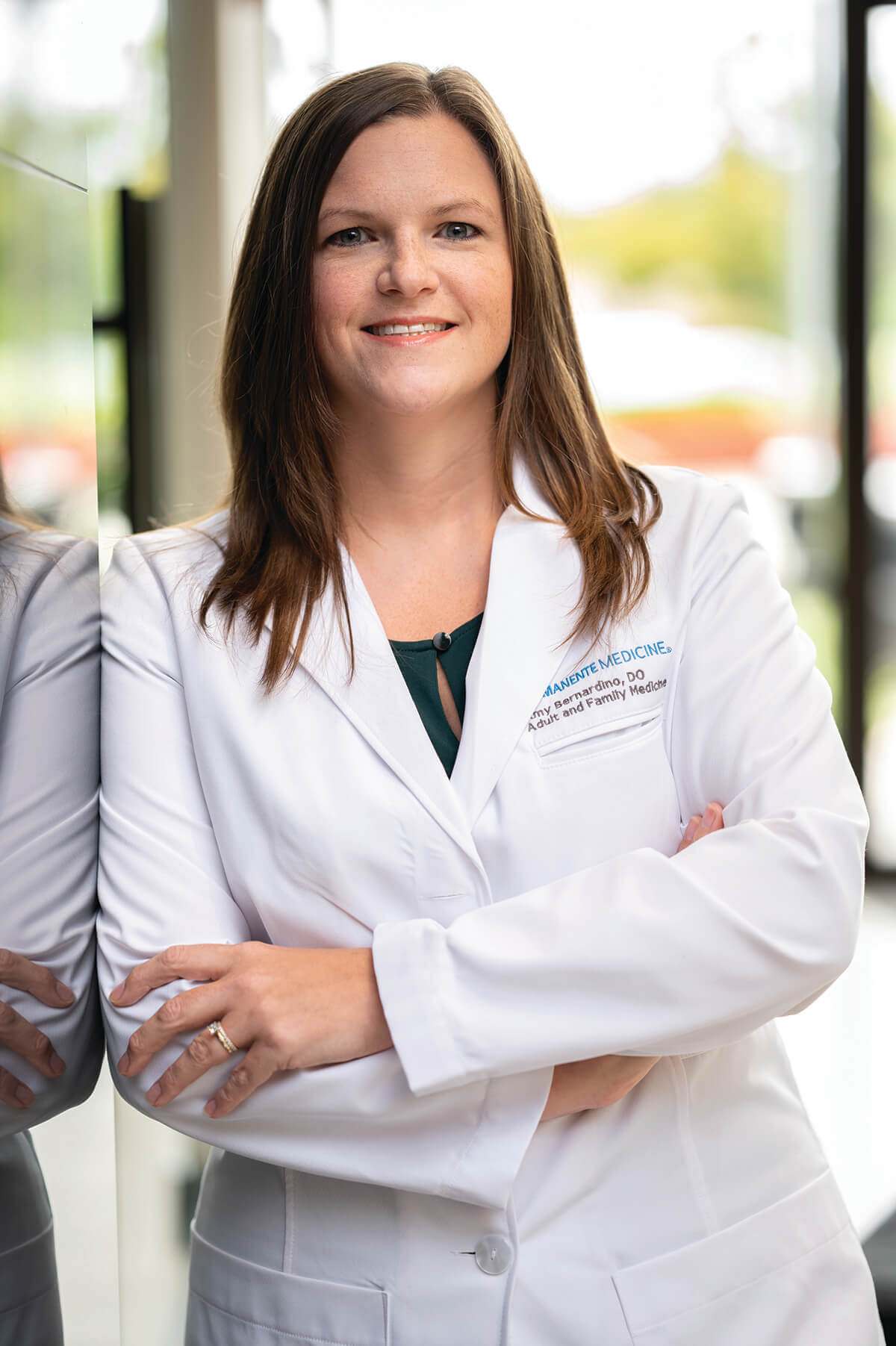
Edited by Christianna McCausland
Photography by Christopher Myers
Illustrations by Debs Lim
A consequence of COVID-19 is that people put off going to their doctors for routine, but crucial, procedures like mammograms and colonoscopies. Now that the pandemic has morphed into a part of our lives, many of us are re-engaging with our health in new and proactive ways. Which makes this year’s Top Doctors list, our 36th, especially timely. Each year’s list is a little different and reflects the milieu of the moment. This year we received some of our highest-ever voting for infectious disease doctors, no doubt a reflection of COVID-19. This was also the first time we’ve featured addiction medicine.
Speaking of timely, perhaps the most serious ramification of the pandemic is the mental health crisis sweeping the nation. Recent research from Boston University School of Public Health indicates that the rate of depression in 2021 skyrocketed to a staggering 32.8 percent, equivalent to 1 in every 3 American adults.
In our feature story, “Shock Value,” deputy editor Jane Marion looks at a misunderstood and controversial treatment for certain individuals with severe depression: electroconvulsive therapy (ECT). While ECT is not the answer for everyone, it has been a lifesaver for many, and the story sheds light into a corner of psychiatry that deserves to be openly discussed as we grapple with a looming public health crisis in behavioral medicine.
Health & Wellness
Doctors Directory
Explore our comprehensive and searchable list of this year's Top Docs and other medical professionals.
Health & Wellness
Shock Value
Electroconvulsive therapy, one of psychiatry’s oldest—and most powerful—treatment tools to combat severe mental illness, is feared, revered, and still used at area hospitals.
Methodology
TO ARRIVE AT OUR RESULTS, we held open nominations on our website, where thousands of physicians nominated the peers they believe are preeminent in their fields. After nominations closed, a furious Excel number-crunch got us to our preliminary list, which we vetted to ensure that all doctors are licensed and in good standing. After that, we turned it over to our four-physician panel of advisers, whom we rely on for their professional expertise and inside intel on the medical community. (Advisers are not eligible to be included on the list in the year they serve.)
Our Advisers
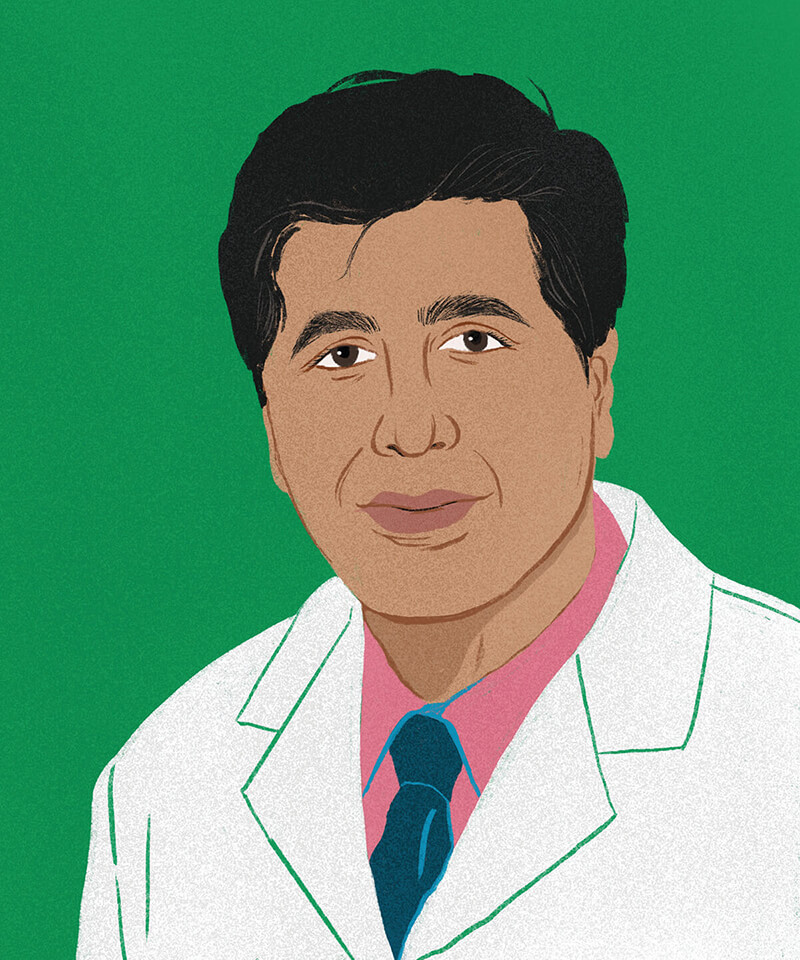
DR. BIMAL ASHAR
Bimal Ashar, M.D., M.B.A., is a professor of medicine at The Johns Hopkins University School of Medicine, the clinical director for the Division of General Internal Medicine, and the director of the Executive and Preventive Health Program. His research interests include preventive medicine, dietary supplements, and medical education. He is also editor of The Johns Hopkins Internal Medicine Board Review, a member of the Society of General Internal Medicine, and a fellow of the American College of Physicians.
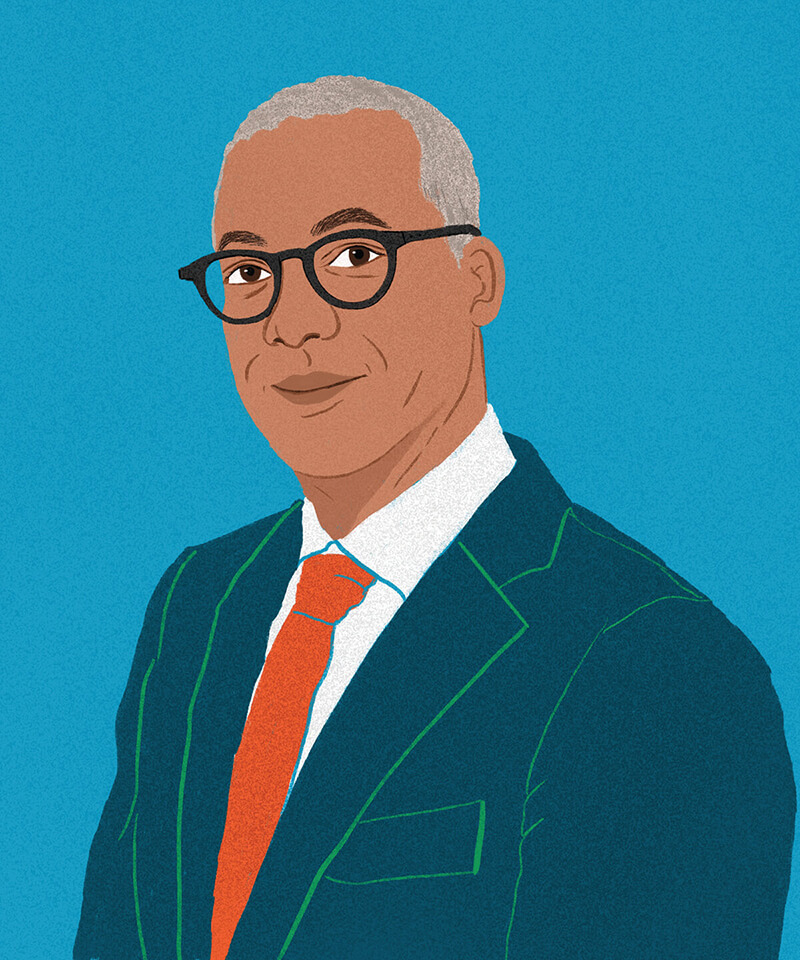
DR. MELVIN S. BLANCHARD
Melvin S. Blanchard, M.D., F.A.C.P., is the chairman of medicine at GBMC and adjunct professor of medicine at the University of Maryland. Most recently, he was chairman of the Alliance for Academic Internal Medicine (AAIM). He was also professor of medicine, vice chair for Medical Education in the Department of Medicine, and chief of General Medicine at Washington University in St. Louis. Dr. Blanchard earned his Doctor of Medicine degree from University of Tennessee Health Science Center and completed his residency in internal medicine at Barnes- Jewish Hospital/Washington University.
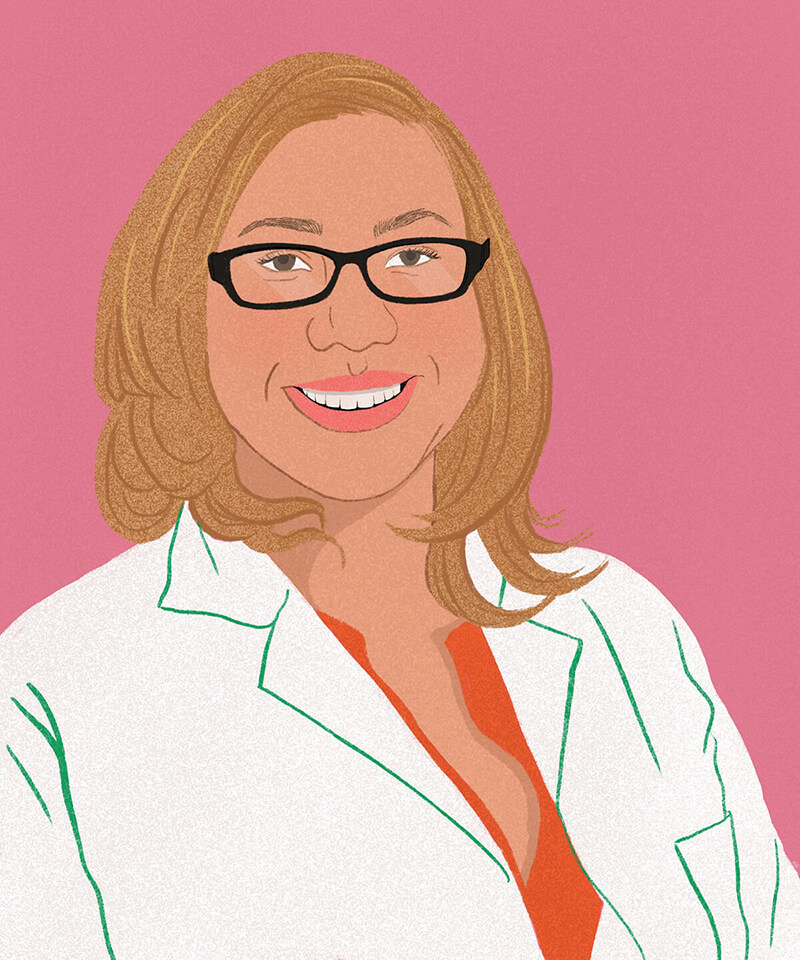
DR. JENNIFER TAYLOR
Jennifer Taylor, M.D., earned her medical degree at State University of New York at Buffalo and completed her residency in OB-GYN at the University of Maryland School of Medicine. She now practices at Mercy Medical Center. Boardcertified in obstetrics and gynecology, she has participated in several research initiatives and has numerous honors, publications, and presentations to her credit. She is a fellow of the American College of OB-GYN, and a member of the American Medical Association and the Douglass Obstetrics and Gynecology Society.
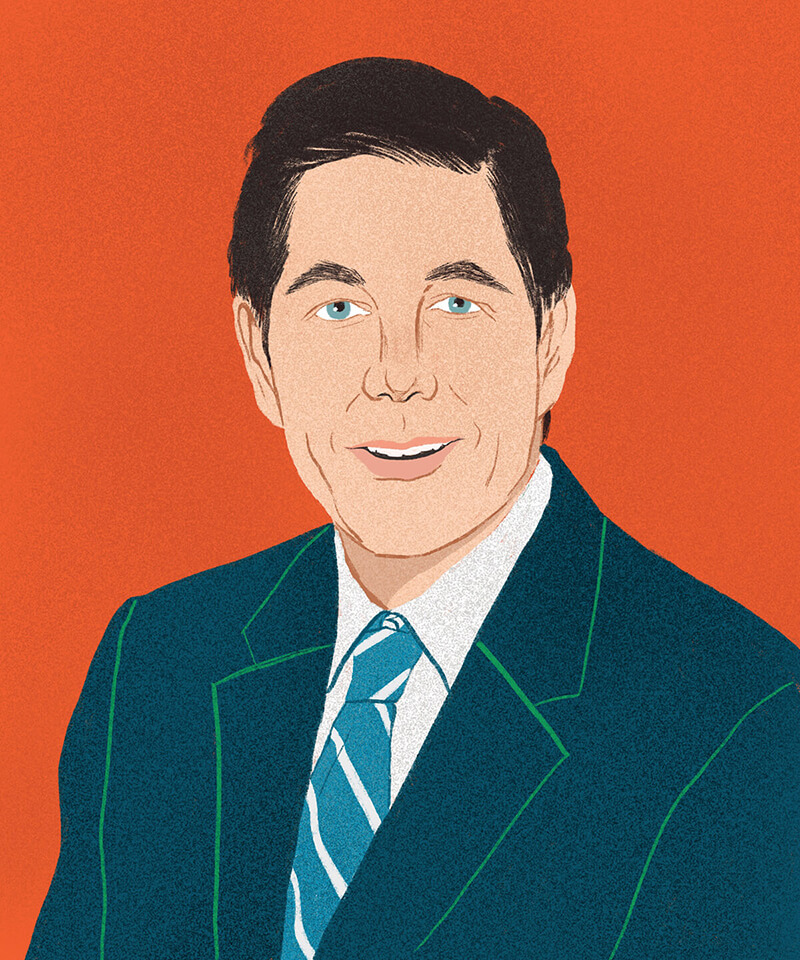
DR. SAMUEL SMITH
Samuel Smith, M.D., is vice president and chief medical officer for Northwest Hospital. Prior to assuming this role, he served as the chief quality officer and chair of the Department of Gynecology for the hospital. Smith earned his medical degree from the University of Maryland School of Medicine, completed his residency at Georgetown University Medical Center, and completed his fellowship in reproductive endocrinology- infertility at Brigham and Women’s Hospital, Harvard Medical School. Smith is board-certified in obstetrics and gynecology and reproductive endocrinology-infertility.
DR. DEBASHISH BOSE
MERCY MEDICAL CENTER
HEPATOBILIARY AND PANCREATIC SURGERY, SURGICAL ONCOLOGY
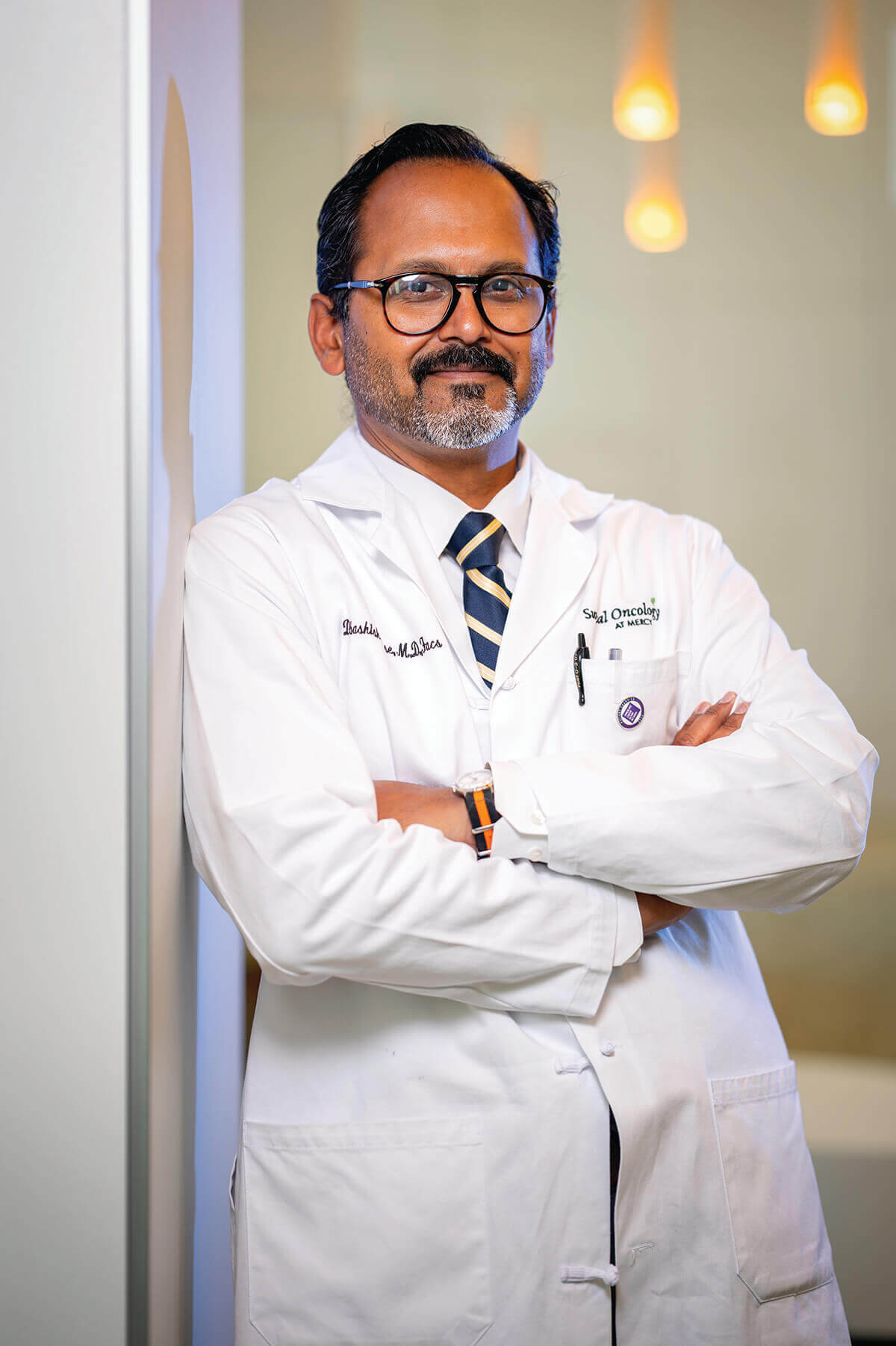
What advice would you give an aspiring doctor? Treat your patients like you would want your loved ones to be treated.
What frustrates you about working in health care? The hurdles to providing patient care due to bureaucracy.
How has cancer treatment evolved over the course of your career? Cancer treatment is now seen as a team effort, with better communication and coordination between various specialists. That team also now includes dietitians, physical therapists, genetic counselors, mid-level providers, and administrators. Everyone can help make a person’s journey better and more successful.
DR. RAYA WEHBEH
GREATER BALTIMORE MEDICAL CENTER
SLEEP MEDICINE
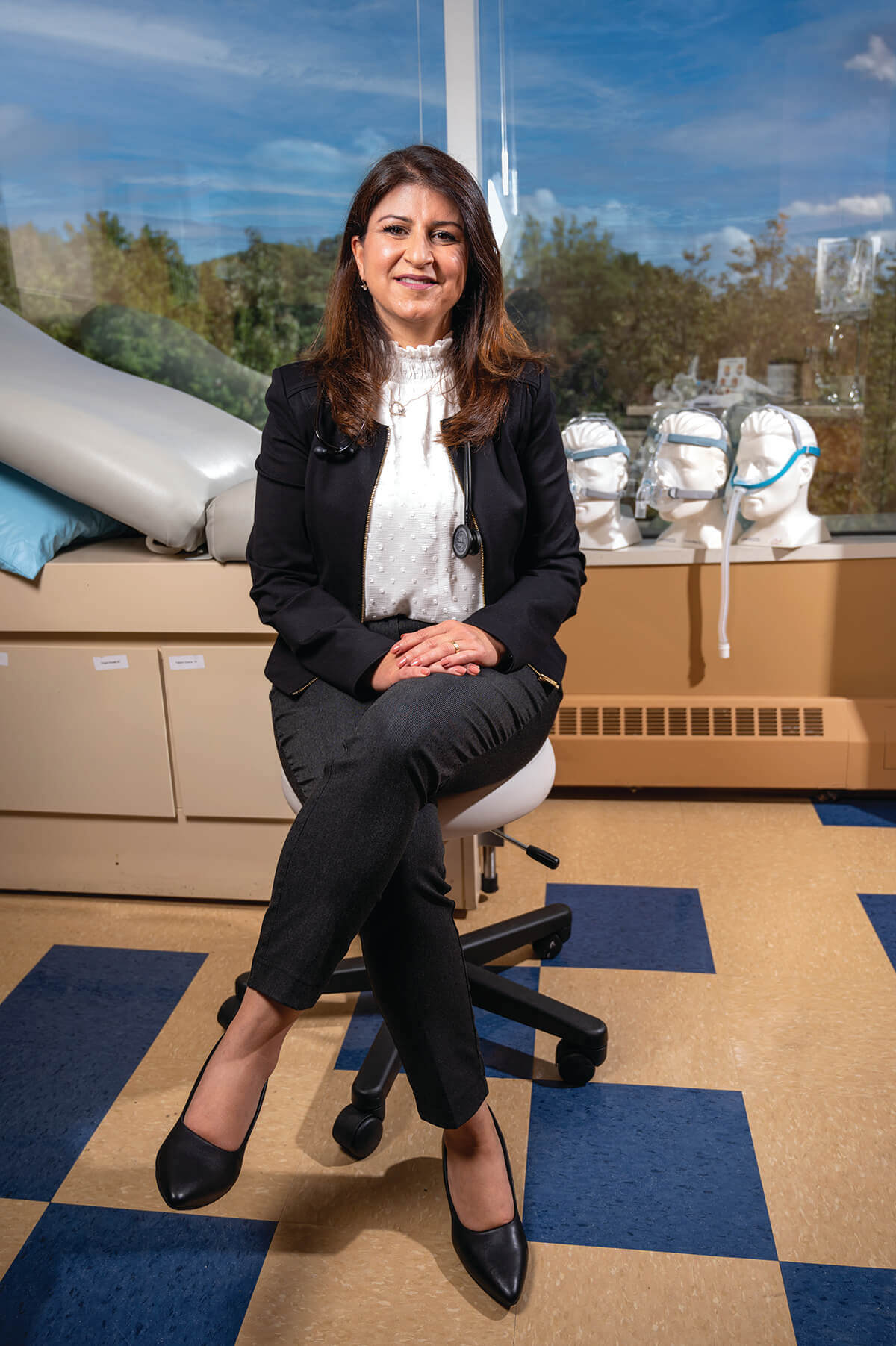
What is the number one piece of health advice you would give? Make sleeping a priority. In our current busy lifestyles, we often forget to do that.
Why did you choose your specific area of practice? I realized how important it is to sleep well for good health and quality of life. I enjoy helping people reach this realization.
What frustrates you about working in health care? Dealing with health insurance companies. Sometimes, we have to work too hard to justify a needed test or treatment for our patients.
Describe a moment that made you remember why you chose this profession. When a patient said, “I have never slept or felt this well. Thank you for changing my life.” Very rewarding!
What is the most recent thing you learned while on the job? If you are patient, compassionate, and always do your best, you will succeed.
DR. AMY BERNARDINO
KAISER PERMANENTE
ADULT AND FAMILY MEDICINE

Why did you choose your specific area of practice? I love having the opportunity to build relationships with my patients, provide care for the whole family throughout their entire lives, and help people find ways to live longer, healthier lives by preventing and managing chronic disease. This is what family medicine is all about.
Describe a moment that made you remember why you chose this profession. My “aha” moment is every time a patient of mine brings their spouse, child, or parent in as a new patient and grants me the opportunity to make a difference in their health.
What is the number one piece of health advice you would give? No matter how busy you are, take time for your health daily. Take the stairs, add an extra vegetable to your meal, or give yourself two minutes to practice gratitude in your car before leaving work. You deserve it.
What frustrates you about working in health care? The cost of care. I wish all Americans had access to free health care.
DR. JOHN CHUNG-YEE WANG
MEDSTAR UNION MEMORIAL HOSPITAL
INTERVENTIONAL CARDIOLOGY
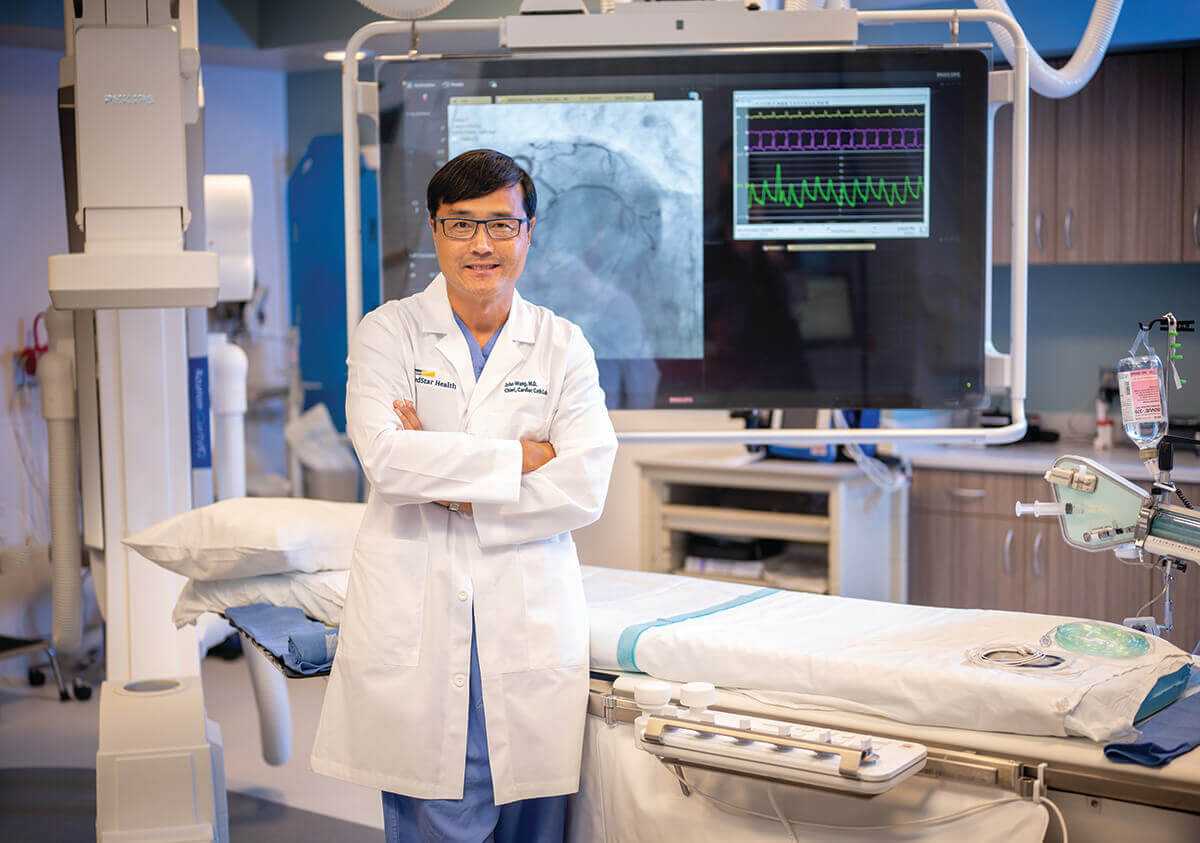
What advice would you give an aspiring doctor? If you focus on the number of years of education and training needed, you may not embark on this journey. Medicine is a very rewarding and diverse field that can suit many personalities. There really is something for everyone. Regardless, prepare to work hard and be a lifelong learner.
Describe your ideal day on the job. At the end of a busy day, it is always nice to know that, in a relatively short amount of time, we can greatly impact a patient’s health and improve their quality of life.
What do you find most fascinating about the human heart? How long it actually lasts. When you think of mechanical devices, whether it be a car engine or mechanical pump, nothing can last 80 to 90 years or even longer. However, the heart, which is made of tissue, does. That I find remarkable.
What is your favorite way to decompress? I actually enjoy mowing my lawn. This always surprises my patients and colleagues. It is a form of meditation. Also, when I am done, I can look at the lawn and feel a sense of accomplishment for my hours of mowing.
DR. MANISHA BAHL
UNIVERSITY OF MARYLAND
HOSPITALIST INTERNAL MEDICINE
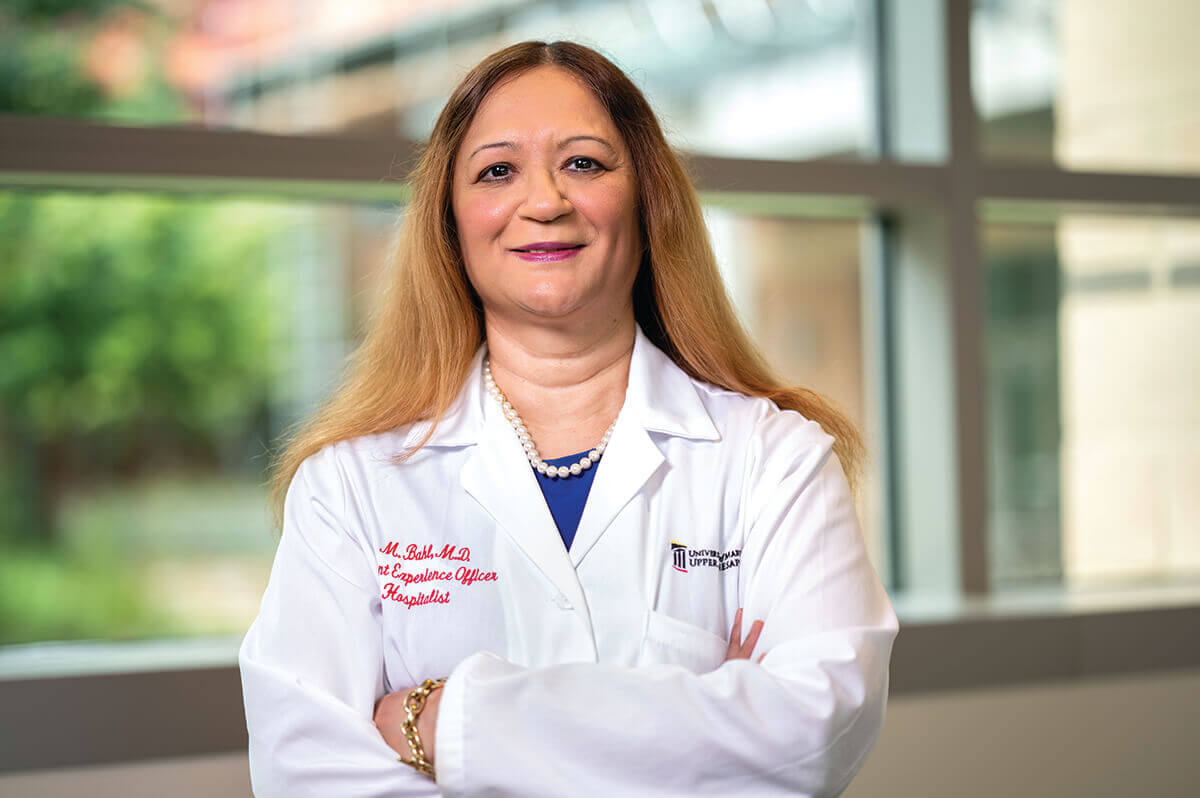
What is the most recent thing you learned while on the job? Consider feedback from patients and supervisors to be a gift. Be receptive to change and ready to learn new things.
Describe a moment that made you remember why you chose this profession. A dying patient made me a bracelet with a crucifix. I have a different faith but wear this bracelet every day since it reminds me why I went into medicine in the first place.
Describe your ideal day on the job. Working in a climate of positivity and collaboration creates an ideal day for me. Physicians are healers, and there is nothing more gratifying than to see a smile on my patient’s face.
DR. JOHN INGARI
NORTHWEST HOSPITAL-LIFEBRIDGE HEALTH
ORTHOPEDIC HAND SURGERY
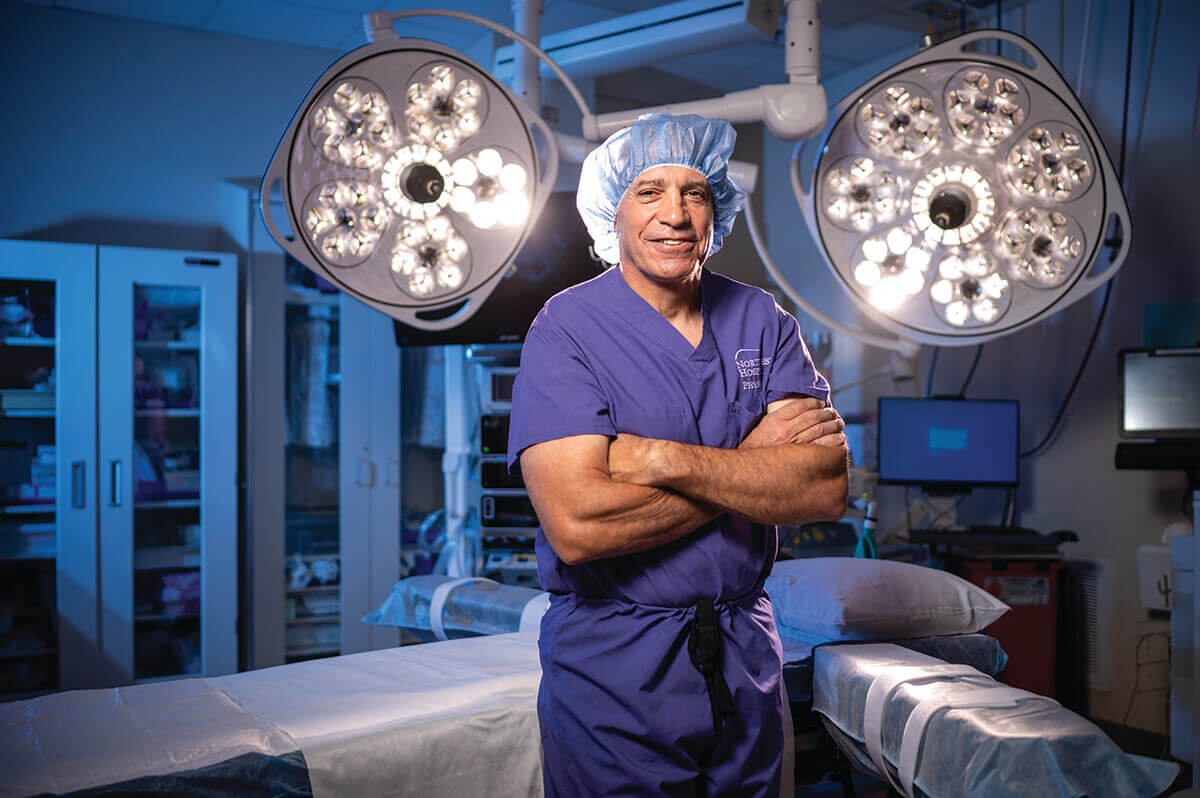
What is your favorite way to decompress? Doing something outside of work that involves my home and my family. Any type of yardwork, really, I find fun and worthwhile. Being at home with my wife and daughter and hearing about their days is always fun.
What is the number one piece of health advice you would give? Pain is an important way your body is communicating with you. It can actually help you by forcing you to rest, change your habits, and improve your health.
Since you work with them and on them, do you take extra care of your hands? I try never to take the complexity of natural hand motion for granted. Along with the movement of our wrists and fingers, which we do without thinking, the sensation in our fingertips is how we stay in contact with our world.
